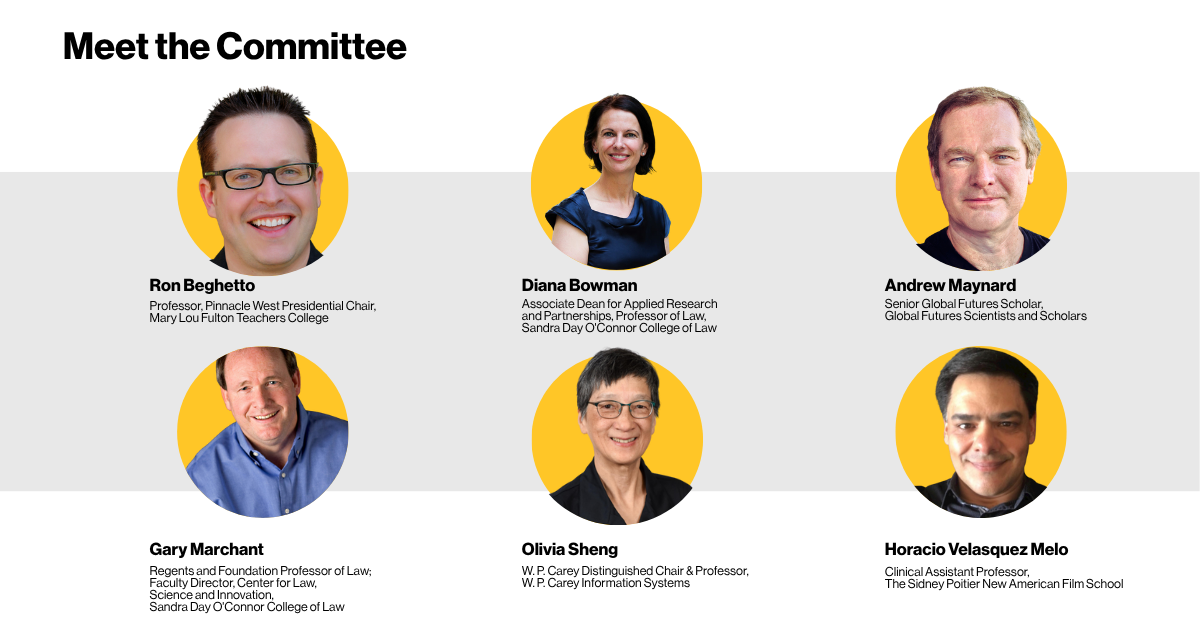The principles themselves are derived with the purpose of providing a guideline for daily decisions regarding building, integrating or evaluating AI tools in the ASU learning and research environment.
By prioritizing inclusion and actionability, faculty and technologists worked together in order to clearly define these design principles. Diana Bowman, associate dean for applied research and partnerships at the Sandra Day O’Connor College of Law, emphasized the importance of representation at these ethics committee meetings.
“We had a desire to ensure a diverse expertise across the ASU campus,” said Bowman. “To ensure a broadened perspective, we included all different levels of usage and knowledge in the room.”
Representatives from W.P. Carey School of Business, Mary Lou Fulton College for Teaching and Learning Innovation, Herberger Institute for Design and the Arts, Sandra Day O’Connor College of Law, and more were present for these discussions, debates and ideation.
All proposed design principles were evaluated with stress tests on various AI initiatives and projects, including the AI Innovation Challenge and Syllabot. With stress-testing and critical evaluation, the technologists involved were able to apply the faculty-led principles to act as a robust guideline for enterprise AI development.
Elizabeth Reilley, executive director of AI Acceleration, highlighted the use of the new design principles as guidelines to follow, rather than immovable rules.
“These principles guide our every day decisions as we create and innovate AI experiences for the enterprise,” Reilley said. “They’re meant to evolve alongside the technology and our collective understanding of it.”
About the Faculty Ethics Committee on AI Technology
Formed as a transdisciplinary team of faculty experts, this committee provides ethical oversight and thought leadership for AI’s development and use at ASU. Working alongside the AI Acceleration team, they help ensure the university’s innovation remains grounded in human values.
The committee originally launched in December 2023.
Members of the Faculty Ethics Committee on AI Technology include:


